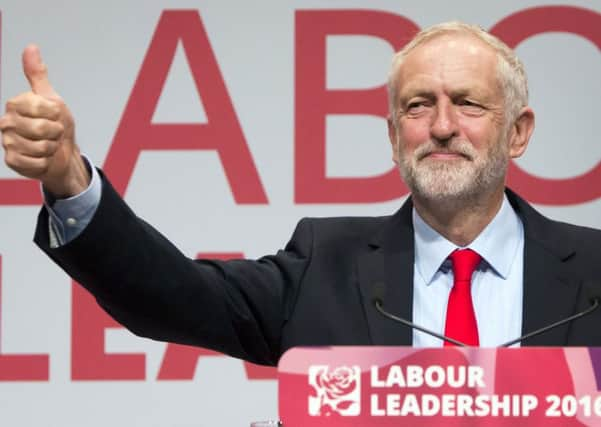NI Labour '˜not interested' in Corbyn's NI past


Boyd Black, the party’s Northern Irish secretary, indicated that whilst Mr Corbyn “has a past” when it comes to his views on a united Ireland, the Northern Irish wing of the party is concerned only with looking “to the future”.
He was speaking after Jeremy Corbyn signalled what could be a historic u-turn regarding Labour’s position in the Province.
Advertisement
Hide AdAdvertisement
Hide AdThe central leadership has long kept a ban in place on any members standing for election in Northern Ireland.
Instead it has maintained what is sometimes described as a “fraternal” arrangement with the SDLP, with the nationalist party’s MPs siding with Labour in the Commons at times.
The Conservative Party, by contrast, does back candidates standing in Northern Irish elections (although they performed appallingly badly in the 2016 Assembly election).
On Monday, freshly re-elected Labour leader Mr Corbyn told the BBC that he recognises there is a “democratic deficit,” with a “strong body” of people demanding change.
Advertisement
Hide AdAdvertisement
Hide Ad“Let us have that discussion over the next few months,” he said.
When Boyd Black was asked if he felt the party could ever make any inroads into Northern Irish politics with Mr Corbyn as leader, given his past liaisons with militant republicans, he said: “Well, let’s wait and see.
“Jeremy Corbyn supports the Good Friday Agreement; that’s the same as every other Labour leader.
“Yes, he’s got a past. But let’s look to the future.
“If we get the Labour Party up-and-running, we’re trying to build a future; we’re not interested in what happened three or four decades ago.”
Advertisement
Hide AdAdvertisement
Hide AdMr Black was asked his own personal view about Mr Corbyn’s previous support for hardliners, such as when he reportedly observed a minute’s silence for an IRA gang who were killed whilst launching an armed assault against Loughgall police station in 1987.
Mr Black said: “I have no comment to make on that.”
Mr Black said that since last May’s general election, party membership has ballooned.
At that time, there were about 300 members in the Province.
Today, he said, there are about 2,500 (plus another 1,000-or-so “registered supporters”; that is, people who can vote in leadership elections but have little input otherwise).
South Belfast man Mr Black had been speaking to the News Letter from the Labour Party conference in England, where he was trying to drum up support among rank-and-file members for a change to the Northern Irish policy.
Advertisement
Hide AdAdvertisement
Hide AdHe said he hoped that a decision on whether or not to permit Northern Irish Labour candidates to stand would be taken by around springtime 2017.
Despite the official ban on standing candidates, a small group of Northern Irish Labour members had defied the party and put their names on the ballot papers during the 2016 Assembly election – although they performed very badly, having been given no official funding or support from the party’s mainstream.
Mr Black said: “It was very much unofficial. I don’t know that that forced them [the Labour leadership].
“The poor results if anything might have set us back somewhat.”
Advertisement
Hide AdAdvertisement
Hide AdHe described the rebels’ decision to stand as having been “doomed to fail from the start”.
Asked if these individuals had been disciplined, Mr Black said: “No, they haven’t so far.”
However, he added: “It’s not that they’ve been necessarily let off.”